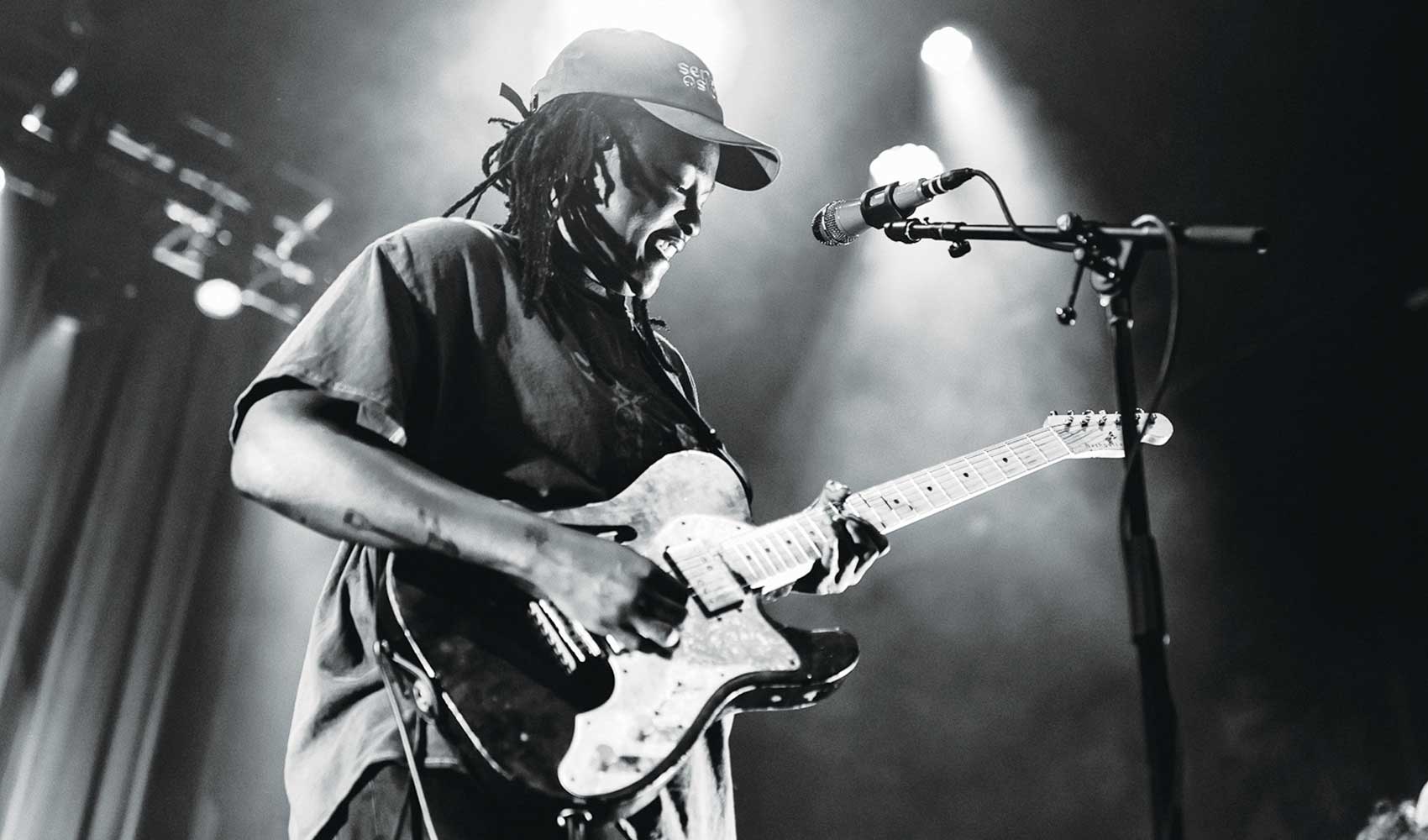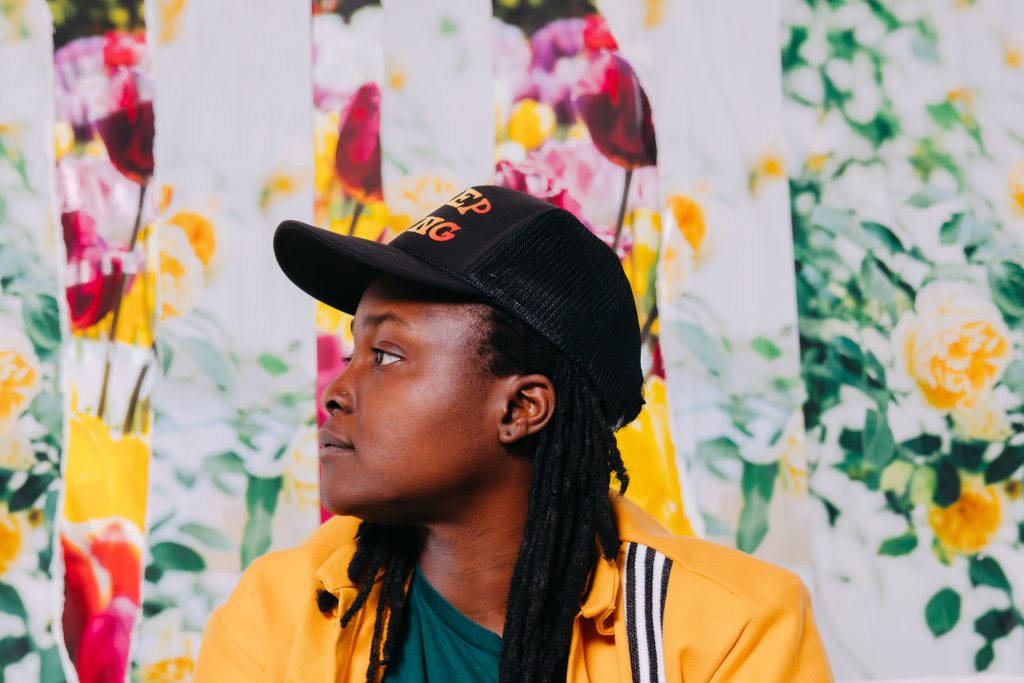
In the music video for “Changes,” the fourth single from her verdant new double album Proof of Life, Joy Oladokun casts her fishing line on a calm country lake as the woods around her go up in flames.
“Newspaper says the world’s on fire,” she sings with a breezy shrug. “People yelling and the water’s rising / it’s easy to feel kinda anxious.”
But if the heat is making her sweat, Oladokun doesn’t let it show. Her line bobbing on the water as she untangles big feelings about climate change and social justice, the video ends with the unbothered folk-pop poet lighting a loose joint on a burning globe. And why not? As she’s quick to remind listeners: “Life’s always been a little dangerous.”
“That is a song everybody sings along to at shows: the queer couple in crop tops, the old fishermen in the back and the aunties sitting at the table on the second level,” Oladokun tells Boulder Weekly from her Nashville studio ahead of the artist’s headlining Bluebird Music Festival appearance on April 20. “I love it, because the song is both biographical and also just about how much I don’t like change, which I think is pretty human. Like, when HBO Max switched to Max — I still haven’t gotten over it.
“I was born right before the L.A. riots, and I was writing this music during the more recent civil rights uprisings in the States,” she continues. “I hate change, but I’m also living on this planet, where it seems like things change fast and not at all.”
‘How do I make this last?’
When it comes to the 32-year-old’s aversion to change, the year since the release of Oladokun’s fourth LP has been a sort of exposure therapy. As critics hail Proof of Life as her “breakout” record — featuring guest turns from mega stars like Chris Stapleton, Noah Kahan and Mt. Joy — she says daily life isn’t quite what it used to be. Even a routine trip to her local Kroger finds the artist gladhanding with eager fans, a new phenomenon she’s still adjusting to.
“There’s a version of my life where I just go get groceries, and that’s all that happened at the grocery store. But that version of my life is gone,” says the self-described introvert. “When people talk about a 'breakout,' there’s a level of joy and excitement that comes with that ... but there’s also this other, maybe less-spoken side. It’s not coming from a place of not being grateful, but I don’t know that this is the most natural position for a human to find themselves in.”

Natural or not, Oladokun is poised at a pivotal moment in her professional life. The singer-songwriter’s rising star has brought a lot more than a high profile in public spaces. It has also catapulted her into an unexpected new arena of success that’s a far cry from her early behind-the-scenes ambition to help other artists find their voice.
“I became a songwriter because a lot of my favorite musicians died young. I sort of wanted to become a professional friend, where I would go into songwriting rooms and help artists tell their stories in a way that didn’t feel like it was chipping away at their sense of self or mental health,” she explains. “Now that I’m in this position I never thought I would be in, it’s like: ‘OK, how do I make this last for a long time?’”
Cowboy Joy
Oladokun gets a certain charge from challenging assumptions around what is and isn’t “Americana” — as a queer Black woman born to Nigerian immigrant parents, but also as a genre-curious shapeshifter skilled in the vocabulary of pop and R&B. As the conversation surrounding who counts as country reaches a new pitch in the wake of Beyoncé’s Cowboy Carter, Oladokun sees two diverging paths for artists who don’t fit the stereotypical mold set by industry gatekeepers.
“I think there’s two versions of events that could happen,” she says. “The first is: ‘OK, Beyoncé is No. 1 on the country charts — what have we been missing in terms of what marginalized artists bring to country music, and how can we elevate it?’”

But it’s another potential outcome that worries Oladokun, an Arizona native who has called the country-music capital of Nashville home since 2016.
“The second thing that could possibly happen is all the Johns and Chads and Bobs say, ‘OK, Beyoncé is No. 1, our jobs are over.’ And they do no further research or self correcting,” she says. “I get a little worried this will be what actually happens, but only time will tell.”
However the discourse shakes out, you’ll find Oladokun doing what she does best: casting her proverbial fishing line on the water as “a stoner in Crocs who just likes to play with guitars and drum machines.”
Amid industry hang-ups, rising sea levels and reckonings on racism in America, there’s a steadying effect in Oladokun’s laid-back, human-scaled approach to processing all this uncertainty. The world may be on fire, but it will be listening.
ON THE BILL: Joy Oladokun at the Bluebird Music Festival. 6:15 p.m. Saturday, April 20, Macky Auditorium Concert Hall, 1595 Pleasant St., Boulder. Tickets here.
